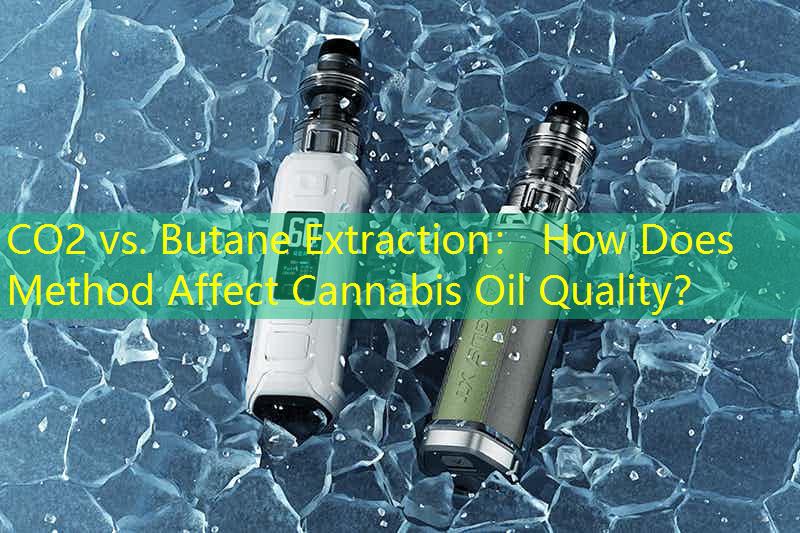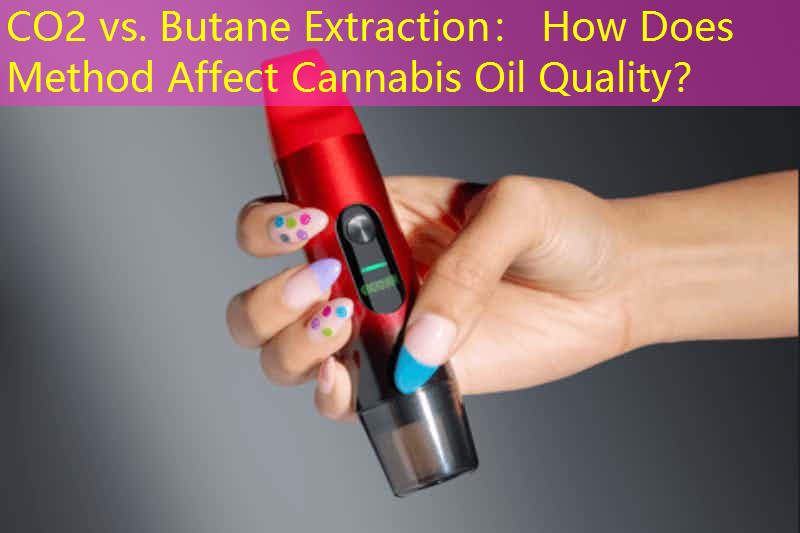Introduction to Cannabis Oil Extraction Methods
As the cannabis industry continues to evolve, Ko te tangohanga o te hinu tarukino te mea nui hei whakaputa i nga hua kounga nui. E rua nga tikanga tangohanga nui, CO2 tangohanga me te tangohanga a Buteane, he rereke te rereke i o raatau tukanga me te kounga o te hinu ka whai hua. Ko tenei tuhinga e whai ana ki te tirotiro i enei tikanga, Te whakarato arataki mo nga kaihoko e rua me nga kaihanga.

CO2 Tangohanga CO2: The Standard for Quality
CO2 extraction utilizes carbon dioxide in a supercritical state, e whai hua ana te tango i nga cannabiniods me te Terpenes i te wa e tiaki ana i to raatau pono. Ko tenei tikanga e kiia ana mo tona kaha ki te whakaputa i te hinu tarukino tino kounga-kore mai i te toenga kino. Na roto i te whakahaere i te pāmahana me te pēhanga, Ka taea e te tangohanga CO2 te tohu i nga whakaurunga motuhake, resulting in a cleaner, purer product.
Advantages of CO2 Extraction
1. **Purity and Safety**: The absence of harmful solvents means CO2-extracted oils are regarded as safe for consumption. This method also minimizes the risk of contamination.
2. **Versatility**: CO2 extraction can yield various product types, from full-spectrum oils to isolates, catering to a wide range of consumer preferences.
3. **Environmental Impact**: CO2 is a non-toxic, environmentally friendly solvent, making this method more sustainable compared to others.
Ko te tangohanga Buteane: A Popular Alternative
Butane extraction, often referred to as BHO (butane hash oil) extraction, uses butane as the solvent. While this method can produce potent concentrates, it is associated with certain risks and challenges, particularly regarding safety and purity.
Advantages of Butane Extraction
1. **Potency**: Butane extraction can result in high-THC products that appeal to experienced users seeking strong effects.
2. **Cost-Effectiveness**: Te āhua nei, butane extraction setups require less initial investment compared to CO2 systems, making it appealing for smaller producers.

3. **Flavor Profile**: Many users prefer butane-extracted oils for their rich flavor profiles, as this method captures a broad spectrum of terpenes.
Disadvantages of Butane Extraction
1. **Safety Concerns**: The use of flammable solvents poses inherent risks, including potential explosions if not performed under controlled conditions.
2. **Residue and Purity Issues**: If not properly purged, butane extraction can leave harmful residues in the final product, raising safety concerns.
3. **Regulatory Hurdles**: Many regions have stringent regulations on butane extraction due to safety concerns, complicating the production process.
Impact on Cannabis Oil Quality
The choice of extraction method significantly influences the final product’s quality. CO2 extraction is typically preferred for medical applications and consumers focused on quality and safety. Hoianō, butane extraction can yield more potent oils for recreational use, appealing to a more niche market.
Wāhanga whakamutunga
Hei whakarāpopototanga, both CO2 and butane extraction methods have their advantages and disadvantages, catering to different segments of the cannabis market. For producers and consumers alike, understanding these differences is crucial in selecting the right method based on quality, whakarurutanga, and intended use. Whether prioritizing purity with CO2 or potency with butane, the choice ultimately depends on individual preferences and needs within the diverse landscape of cannabis oil products.







